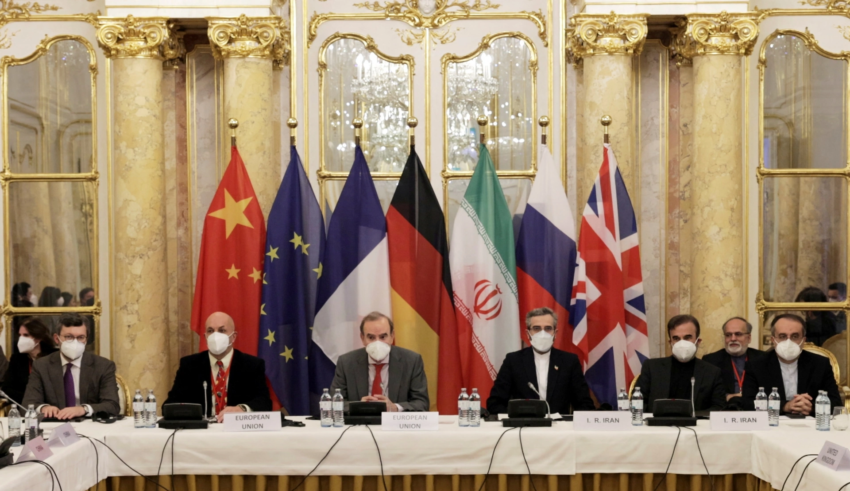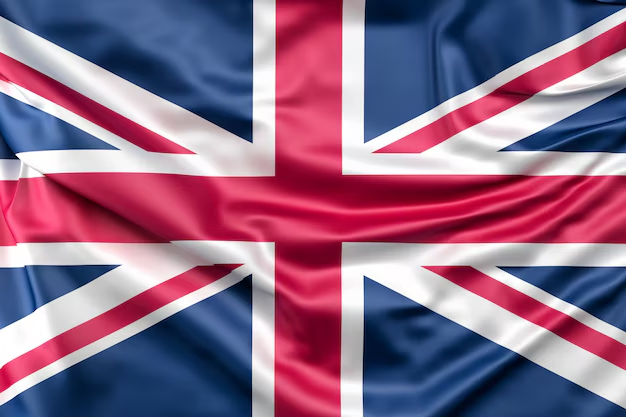
The control and limitation of nuclear armaments worldwide has been a key factor to achieve in order to maintain a relatively peaceful balance of power after the Second World War. Despite the ratification of the Treaty on the Non-Proliferation of Nuclear Weapons (NPT), effective since 1970, however, several countries across the world have not discontinued uranium enrichment programs and increased their nuclear arsenals. Among these, a notable position is occupied by Iran, whose atomic armaments can be seen as a threat to the strategic interests and security of the Western world.
Attempts to curb Iran’s nuclear proliferation have been all but linear, leading many to fear that a resolution will never be achieved. After over a decade of ups and downs in negotiations, 2015 saw the signing of the Joint Comprehensive Plan of Action (JCPOA) by Iran and the so-called P5+1, i.e., the 5 permanent members of the UN Security Council and Germany, as well as the European Union. In 2018, however, the deal came undone as former President Trump withdrew the United States from the JCPOA; consequently, Teheran felt free to disregard its commitments and ignore the set limitations on its nuclear program, bringing uranium enrichment to alarming levels and limiting monitoring by the International Atomic Energy Agency (IAEA).
Following such breakdown, and with an increasingly active mediating role taken on by the European Union through its High Representative, sequential attempts to revive the pact have taken the form of negotiations in Vienna. Progress was allowed by the change in administration in the United States, who re-joined a round of talks led by High Representative and JCPOA co-coordinator Josep Borrell. The so-called Vienna Talks were interrupted in March 2022 “due to external factors,”[1] as the EU and the rest of the world turned their attention to the escalating war in Ukraine. Even at the time, however, Borrell confidently called a future agreement “essentially ready and on the table.” In late July, he then declared that “the space for additional significant compromises has been exhausted,”[2] and that the document currently under discussion clearly outlined steps for the shutting down of Iran’s nuclear program on one side and for a gradual lifting of the sanctions on the other. His OP in the Financial Times underlined the urgency of finalising the deal despite the reservations from both Teheran and Washington, both for the purposes of restoring the JCPOA itself, as well as to show the possibility of successful international negotiations during tense times – and its auspices seem well on the way of becoming reality.
President Biden, urged by Middle Eastern allies such as the Saudis to swiftly draw up a strategy to “contain” Iran, described the withdrawal of the US from the deal a “gigantic mistake” made by Trump. Following such statement, Secretary of State Antony Blinken openly backed the EU’s proposal and pointed out their willingness to move forward with the negotiations, if Iran showed equal good will. Surely enough, Teheran officials feel that the success of the new round of talks should fall upon the shoulders of “those who breached the deal,” as tweeted by lead negotiator Ali Bagheri Kani before heading to Vienna. Though both sides have openly declared that their expectations for resolution are low, talks are set to begin once again as of early August, and the pressure on the parties to reach an agreement seems as high as ever.
Back in March, in fact, despite its limited ability to fully monitor nuclear activity in Iran, the IAEA had reported the possession by Teheran of 33kg of uranium enriched at 60%, whose only purpose could be the construction of an atomic bomb. The possession of the necessary materials to build nuclear arms, indeed, is cause for greater concern nowadays than it ever was since, thanks to recent technological developments, the necessary assembly time has been reduced from almost 12 months to a mere few weeks, heightening the risk of escalation at any moment.
A full revival of the JCPOA, moreover, would not only reinstate the limitations on Iran’s nuclear proliferation, thus reducing the threat posed by its uranium reserves, but also lift many of the Western-imposed sanctions on the country. The removal of such economic barriers shall benefit the Iranian people, whose ability to increase fossil fuel production and export will deliver them a significant economic and financial dividend. Furthermore, an end to the ban on Iranian oil could not come at a more beneficial time for the European Union, as the renewed flow from Teheran would help subvene the current fossil fuel crisis caused by the Russian invasion of Ukraine and prevent extreme shortages as winter approaches. As Europe plans to phase out Russia as its energy provider in the long-term, indeed, Iran’s significant oil reserves could be a viable substitute before the EU is able to effectively power itself with renewable resources as intended by their climate strategy. Analyses, in fact, estimate that Iran would be able to currently supply the global market with around 1 million barrels of crude and condensate for three months, during which the country would be able to ramp up its production to reach pre-sanctions levels of 3.8 mb/d. Such increase in overall supply could satiate the markets and offset the dangerous effects of a possible EU ban on Russian oil which, if left unbalanced, could make the price per barrel skyrocket to $185 according to Goldman Sachs.
It is therefore time for both Iran and the United States to set aside unrealistic demands that do little but gridlock the negotiations, already impeded by their unwillingness to hold direct talks, thus requiring an EU envoy to act as intermediary as previously done in Doha. While, admittedly, the agreement on the table is not perfect, the Western parties have clearly marked it as the best deal they are willing to offer; though it would be impossible for the United States to agree to some of Teheran’s demands, such as a guarantee that a future POTUS will not once again pull back from the pact, the timing of the talks opens room for accepting a compromise. The current state of international diplomacy and of the global oil markets would make a revival of the JCPOA beneficial to all involved parties, holding not only great political significance but, importantly, representing a fructuous economic, which should be seen as a compelling incentive for the success of the next round of Vienna talks.
References:
Borrell, J. (2022, July 26). Now is the time to save the Iran nuclear deal. Retrieved August 5, 2022, from @FinancialTimes website: https://www.ft.com/content/e759d274-7dba-4e78-851f-2775972f4c31
Parisa Hafezi,Arshad Mohammed. (2022, August 3). U.S., Iran to resume nuclear talks; U.S. expectations “in check.” Retrieved August 5, 2022, from Reuters website: https://www.reuters.com/world/iran-chief-negotiator-travels-vienna-talks-save-2015-nuclear-pact-2022-08-03/
How would a revived US-Iran nuclear deal change the sanctions landscape? | JD Supra. (2022). Retrieved August 5, 2022, from JD Supra website: https://www.jdsupra.com/legalnews/how-would-a-revived-us-iran-nuclear-7827826/
Could Iran Replace Russian Oil and Gas? (2022, March 30). Retrieved August 5, 2022, from Arab Gulf States Institute in Washington website: https://agsiw.org/could-iran-replace-russian-oil-and-gas/
Hansler, J. (2022, August). Blinken backs EU proposal to revive Iran nuclear deal. Retrieved August 5, 2022, from CNN website: https://edition.cnn.com/2022/08/01/politics/us-iran-sanctions/index.html
Motamedi, M. (2022, July 26). Iran says it has new ideas on nuclear deal after EU proposes text. Retrieved August 5, 2022, from Aljazeera.com website: https://www.aljazeera.com/news/2022/7/26/iran-says-it-has-new-ideas-on-nuclear-deal-after-eu-proposes-text
[1] Borrell Fontelles J., [@JosepBorrellF] (March 11th, 2022), Tweets Josep Borrell Fontelles, Retrieved from https://twitter.com/josepborrellf/status/1502230567047335941
[2] Borrell, J. (2022, July 26). Now is the time to save the Iran nuclear deal. Retrieved August 4, 2022, from @FinancialTimes website: https://www.ft.com/content/e759d274-7dba-4e78-851f-2775972f4c31
By The European Institute for International Law and International Relations.














